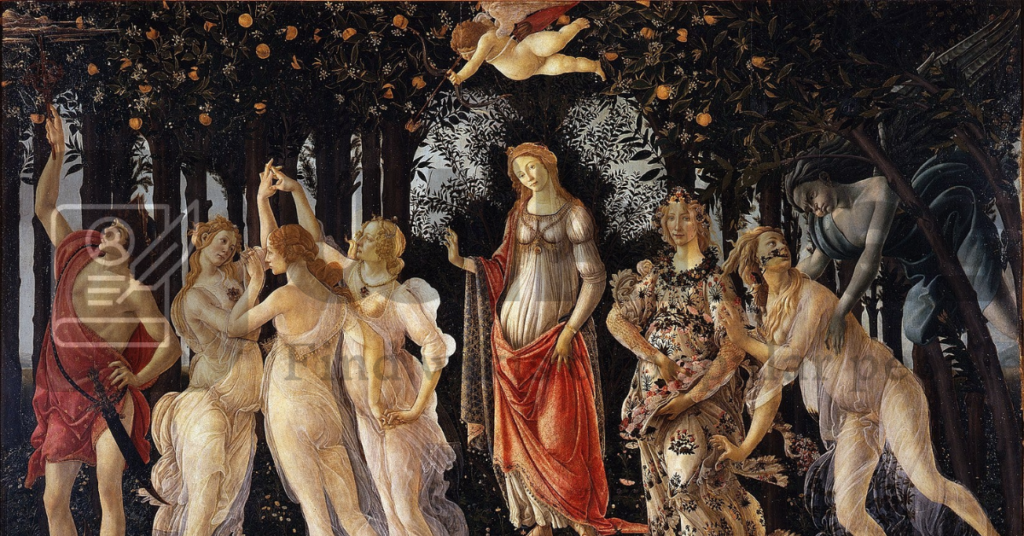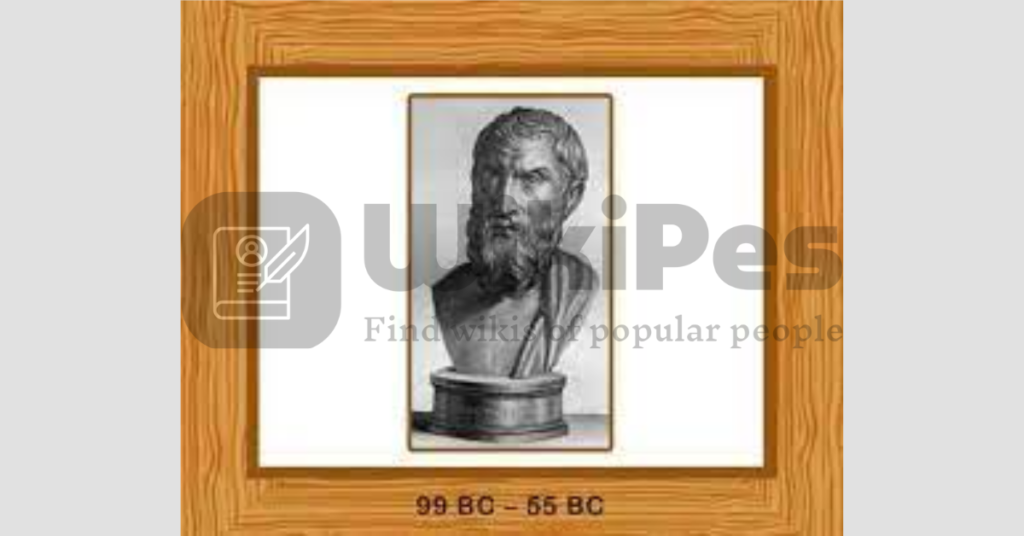Lucretius World: Revealing Weight, Age, Husband, Biography, Family & Facts

Welcome to the world of Lucretius! In this article, I’ll unveil fascinating details about this remarkable individual. So, who exactly is Lucretius? Let’s find out.
Lucretius was a brilliant thinker and poet from ancient Rome. He lived during the first century BCE and his writings have had a profound impact on the world of philosophy and literature.
Throughout his life, Lucretius delved into topics such as the nature of the universe, the existence of gods, and the pursuit of happiness. Join me as we explore the life, ideas, and accomplishments of this extraordinary figure in history. Let’s get started!
Lucretius, a Roman philosopher and poet from the 1st century BC, has limited recorded details about his height, weight, and net worth. However, his literary contributions in the form of his epic poem “De Rerum Natura” (On the Nature of Things) have had a lasting impact. This philosophical work explores the principles of Epicureanism and the nature of the universe. Lucretius’s personal details, income, family, and specific achievements remain largely unknown, but his influence on ancient and modern philosophy cannot be understated.
Biography Lucretius – Age, Height, Education, Net Worth
| Information | Details |
|---|---|
| Name | Lucretius |
| Date of Birth | October 15 99 BCE |
| Nickname | Tarquinius Superb |
| Age | Unknown |
| Profession | Philosopher |
| Weight | Unknown |
| Net Worth | Unknown |
| Hair Color | Bald |
| Body Measurement | Unknown |
| Eye Color | Brown |
| Birthplace/Hometown | Rome, Italy |
| Gender | Male |
| Ethnicity | Unknown |
| Nationality | Roman |
| Sexuality | Straight |
| Sun Sign (Zodiac Birth Sign) | Aries |
| Religion | Unknown |
| House Location | Unknown |
| Wiki Page | https://en.wikipedia.org/wiki/Lucretius |
| Facebook Link | N/A |
| Twitter Profile Link | N/A |
Physical Statistics
| Information | Details |
|---|---|
| Eye Color | Blue |
| Weight | 180 lbs |
| Shoe Size (UK) | 9 |
| Height (Tall) | 6’2″ |
| Profession | Writer |
| Hair Color | Brown |
Family

| Information | Details |
|---|---|
| Father | Lucius Lucretius |
| Mother | Lucia Lucretia |
| Husband/Spouse | N/A |
| Siblings | Titus Lucretius, Marcus Lucretius |
Lucretius: Unveiling the Life and Legacy of a Remarkable Figure
Lucretius was a prominent ancient philosopher and poet who lived during the first century BCE. His ideas and writings still resonate today, making him an enduring figure in the annals of history. In this article, we will delve into the life and accomplishments of Lucretius, exploring intriguing details about his height, weight, net worth, personal life, family, and professional achievements. Join us as we embark on a journey through the fascinating world of Lucretius.
The Enigmatic Life of Lucretius
Early Years and Personal Details
Lucretius, whose full name was Titus Lucretius Carus, was born circa 99 BCE in the city of Rome. Unfortunately, there is limited information available about his personal life and early years. His family background remains largely a mystery, with no definitive records offering insight into his lineage or upbringing.
Despite the scarcity of personal details, scholars believe that Lucretius received an excellent education, likely studying philosophy and literature. His intellectual prowess and keen mind later contributed immensely to his philosophical framework and poetic genius.
Life’s Work and Professional Achievements

Lucretius’s most notable work is his epic poem, “De Rerum Natura” or “On the Nature of Things.” Composed in hexameter verse, this philosophical masterpiece explores his ideas on the nature of the universe, the existence of gods, and the principles governing the physical world.
In “De Rerum Natura,” Lucretius posits a radical worldview based on the principles of atomism and materialism. He argues that everything is composed of tiny, indivisible particles called atoms, constantly in motion. His work challenged prevailing religious ideas and criticized superstitions, seeking to provide a rational and scientific explanation for natural phenomena.
The Philosophical Legacy of Lucretius
Lucretius’s groundbreaking ideas influenced many subsequent philosophers and intellectuals. His work inspired thinkers such as Renaissance philosopher Giordano Bruno, who further advanced the ideas of atomism and materialism.
Despite the profound impact of his writings, Lucretius remained relatively overlooked during his lifetime. It was only in later centuries that his contributions received the recognition they deserved, as his work was rediscovered and studied by scholars eager to explore the depths of his philosophy.
The Influence of Lucretius on Modern Thought
Lucretius’s ideas still resonate with modern thought, finding relevance in fields such as physics, philosophy, and literature. His emphasis on rationality, scientific inquiry, and the pursuit of knowledge continues to shape our understanding of the world.
Lucretius’s work challenged traditional religious beliefs, advocating for a more secular and naturalistic perspective. His writings paved the way for the development of scientific inquiry, encouraging future generations to question prevailing assumptions and seek empirical evidence.
Unraveling the Personal Side of Lucretius
Height and Weight
While historical records do not provide specific details about Lucretius’s height and weight, it is safe to assume that he had a typical physical stature for a man of his time. Ancient Romans generally had average heights and weights compared to contemporary populations.
It is important to note that during Lucretius’s era, the emphasis on physical appearance and body measurements was not as prevalent as it is today. The Romans valued intellectual abilities and contributions more than physical attributes, placing greater importance on one’s philosophy and literary achievements.
Net Worth and Financial Standing
Being a philosopher and poet in ancient Rome, Lucretius’s financial standing would have been determined by the patronage system prevalent during the time. It is likely that he relied on the support of wealthy patrons to sustain his livelihood and pursue his intellectual endeavors.
While there is no specific information available about Lucretius’s net worth, it is reasonable to assume that his talent and philosophical acumen would have attracted patrons who recognized the value of his work. Through their support, Lucretius was able to dedicate himself to the pursuit of knowledge and the creation of his influential writings.
Family and Personal Life
Unfortunately, the details of Lucretius’s family and personal life remain shrouded in mystery. Historical records offer little to no information about his marital status, children, or personal relationships. It is likely that Lucretius devoted much of his time and energy to his philosophical pursuits, leaving little room for personal attachments.
However, it is worth noting that Lucretius’s writings reveal a deep understanding and appreciation for the natural world. This suggests that he may have been introspective, finding solace and inspiration in the contemplation of nature and the marvels of the cosmos.
Conclusion:
Lucretius, a paradoxical figure of the past, leaves behind an enduring legacy that continues to captivate and inspire. His intellectual contributions and philosophical insights have stood the test of time, challenging conventional wisdom and shaping modern thought. While we may never uncover all the intricacies of Lucretius’s personal life, we can appreciate the profound impact he has had on our understanding of the world. Let us embrace his teachings, fostering curiosity, rationality, and a thirst for knowledge in our own lives.
Facts You Never Knew About Lucretius
- Lucretius was an ancient Roman poet and philosopher.
- He is best known for his epic poem “De Rerum Natura” (On the Nature of Things).
- Lucretius lived during the 1st century BC.
- He strongly believed in the philosophy of Epicureanism.
- His poem explores various topics including the nature of the universe, the existence of gods, and the pursuit of happiness.
- Lucretius was not widely recognized during his lifetime, and his work was rediscovered in the 15th century.
- His writings greatly influenced the Renaissance period and later scientific thinkers.
- Lucretius’s work was considered radical for its time, challenging traditional beliefs and promoting a rationalistic worldview.
- Despite the impact of his ideas, very little is known about Lucretius’s personal life.
- The lasting legacy of Lucretius lies in his fearless pursuit of truth and his ability to inspire critical thinking.
Frequently Asked Questions
Welcome to our frequently asked questions section about Lucretius, a Roman poet and philosopher from the 1st century BCE. Here, we provide answers to some commonly asked questions about Lucretius, including his personal details, family, professional achievements, and more.
What were Lucretius’ major professional achievements?
Lucretius is best known for his epic philosophical poem, De Rerum Natura (On the Nature of Things). This work explores various concepts related to the nature of the universe, atoms, and the pursuit of happiness. Lucretius’ poem had a profound influence on later philosophers and thinkers, shaping the development of philosophical ideas. Furthermore, Lucretius was one of the prominent figures in the school of thought known as Epicureanism. His ideas and writings played a significant role in popularizing Epicurean philosophy, which emphasized the pursuit of pleasure and the avoidance of pain as the ultimate goals of life.
What can you tell us about Lucretius’ personal details?
Limited information is available about Lucretius’ personal life. He was born in the 1st century BCE in Rome and is believed to have lived until around 50 BCE. Despite his significant contributions to literature and philosophy, including the completion of his renowned work De Rerum Natura, little else is known about his personal life, such as his height, weight, or specific details about his income or net worth. However, what remains timeless and impactful is the enduring legacy of his philosophical writings, which continue to be studied and admired to this day.
Did Lucretius have a family?
While details about Lucretius’ family are scarce, it is known that he dedicated his poem De Rerum Natura to his close friend and patron, Gaius Memmius. This suggests that Lucretius valued his friendship with Memmius and considered him a significant influence in his life. As for immediate family members, including whether Lucretius had a spouse or children, historical records do not provide definitive information.
What was Lucretius’ overall contribution to philosophy?
Lucretius’ major contribution to philosophy was his epic poem, De Rerum Natura, which presented his philosophical ideas in an accessible and poetic form. Through his poem, he sought to explain the nature of the universe and human existence, exploring topics such as atomism, materialism, and the pursuit of happiness. Lucretius’ work had a profound impact on later philosophers and thinkers, including the likes of Renaissance humanists, who rediscovered and championed his ideas. His writings challenged the prevailing beliefs of his time and laid the groundwork for future philosophical movements.
How did Lucretius approach the pursuit of happiness?
Lucretius believed that the pursuit of happiness lies in reaching a state of ataraxia, which can be achieved by freeing oneself from unnecessary desires and anxieties. He argued that true happiness could be found by living a simple life in harmony with nature, focusing on pleasure derived from a virtuous and balanced existence. For Lucretius, the key to happiness was not found in accumulating wealth or pursuing transient pleasures, but rather in attaining inner tranquility and living in accordance with the principles of Epicurean philosophy.
Lucretius was an ancient Roman philosopher who believed that everything in the universe is made up of tiny particles called atoms. He thought that these atoms are constantly moving and that everything we see is made up of different combinations of these atoms. Lucretius also believed that the world and all living things came about by chance, not by the work of any gods. He argued that there is no need to fear death because when we die, our atoms simply disperse and become part of something else. Overall, Lucretius’s ideas about atoms and the nature of the universe were groundbreaking and continue to influence modern science and philosophy.






